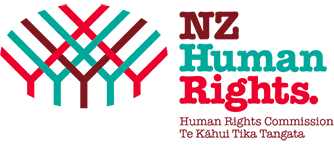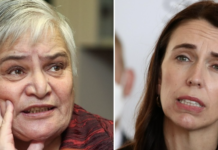The Human Rights Commission has welcomed the Government’s commitment to Māori health and housing initiatives in the 2021 Budget, and for an increase in benefits.
“Major investment in Māori housing, support for Māori by Māori approaches, and an increase to main benefits are steps towards the right to a decent standard of living and the right to a decent home,” Chief Human Rights Commissioner Paul Hunt said.
“It is particularly encouraging to see investment in Tiriti partnerships and enabling Iwi and Māori to exercise rangatiratanga and lead solutions – for example, in the areas of Māori housing, the Māori Health Authority, Iwi community panels in the justice sector, and Kaupapa Māori justice and family violence initiatives.”
Mr Hunt was responding to the Government’s 2021 Budget announcement that it would put $242.8 million in Māori health initiatives, including setting up the new Māori Health Authority which was announced in April.
A $380 million boost for Māori housing is expected to go towards building 1000 new Māori homes, restoring and repairing around 700 other homes owned by Māori, and expanding iwi and Māori led projects and support services.
An additional $350m has been earmarked from the existing Housing Acceleration Fund for infrastructure to enable Māori housing development.
“The right to a decent home is grounded in Te Tiriti. From my perspective this budget’s focus on Te Tiriti builds a positive foundation. Most importantly the opportunity for tangata whenua tino rangatiratanga is the most effective pathway out of poverty and dependency,” he said.
Disability Rights Commissioner Paula Tesoriero said: “Ensuring new homes were built to universal design standards would help to improve the critical lack of accessible homes for disabled people and tangata whaikaha.”
The Government also announced that it would increase main benefits by between $32 and $55 a week per adult with the first increase of $20 a week per adult to start from 1 July this year and the remainder from 1 April next year.
“It’s encouraging to see the commitment to wellbeing and dignity through the long-awaited benefit increase, additional childcare subsidy, training allowances, but clearly much more is needed,” said Equal Employment Opportunities Commissioner, Saunoamaali’i Karanina Sumeo.
While the increase in main benefits was welcomed, Disability Rights Commissioner Paula Tesoriero said extra measures were necessary to lift disabled people out of poverty.
“Disabled people and especially children are more likely to live in poverty than non-disabled people. Increasing disability related allowances – recognising their additional costs and barriers – would have helped address this disparity. Sadly, we still have a long way to go when it comes to alleviating poverty for disabled people,” she said.
Ms Sumeo said overall while the budget seeks to lift outcomes for people in New Zealand, the lack of commitment to raising the living wage means that lowest-paid including some essential workers continue to fall through the cracks.
Lack of a clear plan to ensure women’s and young people’s employment security especially, is concerning. Investing in this would immediately help to lower our disgraceful child poverty and household poverty rates,” she said.
Ms Tesoriero said greater commitment to building a sustainable inclusive education system in the budget would also have been welcomed.
“A truly inclusive education system is a package which wraps curriculum, facilities, teacher training and development, and support around disabled learners. Too many disabled learners are still marginalised in our current education settings. I urge the Government to make inclusive education a priority in future budgets,” she said.
Mr Hunt concluded: “If human rights, including social rights, which New Zealand has signed up to, are explicitly integrated into the Government’s policy making processes this will strengthen and reinforce several of the budget’s initiatives.”






The productive section will pay they always do.Who else can?
So we need to ensure they can operate to generate income so the government can tax then redistribute.
Golden gooses and eggs/biting the hand that feeds.
Comments are closed.